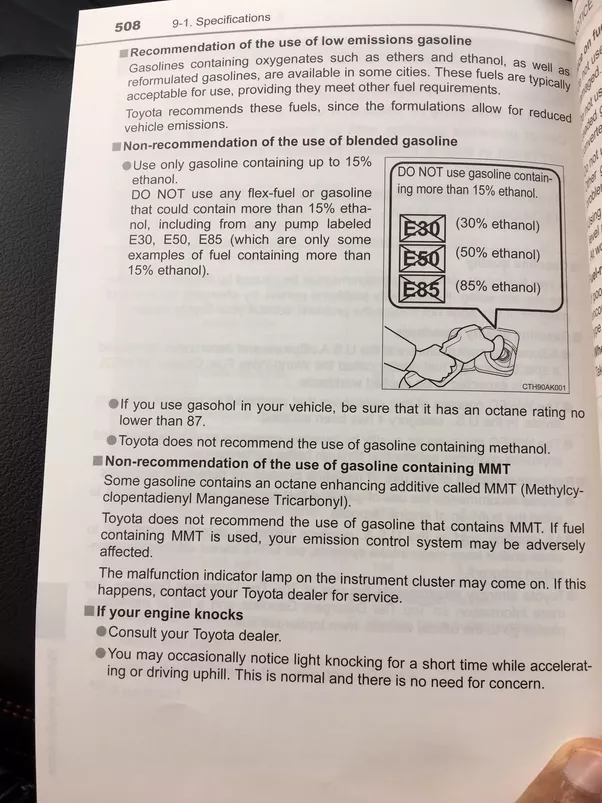Josephus312
Senior member
- Aug 10, 2018
- 586
- 172
- 71
And that is an actual legal requirement to put in there ONLY in the US despite the same car with the exact same specs doesn't have that in South America or Europe. Take a guess why that is in there?I do know that if an engine is designed to run on a higher octane fuel, it can use a knock sensor to retard the timing if you put lower octane fuel in the engine. You don't suddenly get an extra 10HP from using a higher octane fuel in any random sedan you care to drive.
This picture is from the owner's manual of a 2017 Toyota, seems like they think you shouldn't put E85 in it...

It's not because it's an old shabby car without an octane sensor and an ECU able to set the ignition timing, it's because oil companies required it in the US and of course we take it up the ass and let the oil companies handle all such matters.


